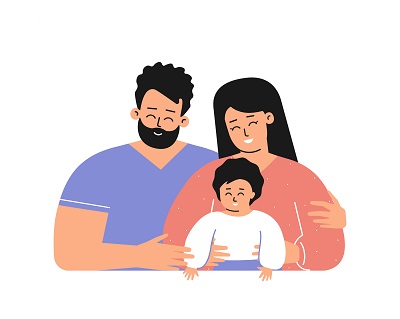All About Parent-Child Interaction Therapy (PCIT)
All About Parent-Child Interaction Therapy (PCIT)

What is PCIT?
Parent-Child Interaction Training (PCIT) is a type of therapy that involves both parents/guardians and their young children (usually ages 2 to 7). PCIT often feels like play therapy, but the parent/guardian(s) provide the intervention instead of the therapist, which allows for more generalization of the skills between therapy sessions and after the therapeutic relationship is over. After all, parents/guardians are the ones who will see their children grow into the amazing adults they will be, and the therapist is only here as a brief part of that journey.
What are the goals of PCIT?
The main goal of PCIT is to improve child behavior by improving parent-child relationships and communication. Parents/guardians can expect fewer and less intense tantrums, reduced hyperactivity symptoms, decreased undesired behaviors, and decreased parental frustration. Parents/guardians can also expect more positive feelings, increased attention span, increased self-esteem, and increased prosocial behaviors (like flexibility and sharing) for their child.
How does PCIT work?
PCIT can involve either in-person or video sessions. Some sessions are focused on parents and guardians learning the basic principles of PCIT. Most sessions involve parent/guardian and child playing together while the therapist provides live coaching through headphones to support the use of those skills.
PCIT has two different phases of treatment. The first phase, called Child Directed Interaction (CDI) focuses on increasing warmth and positive communication through the use of PRIDE skills. PRIDE stands for Praise, Reflection, Imitation, Description, and Enjoyment. During the CDI phase, parents/guardians are also encouraged to reduce the use of questions, commands, and negative talk during play. When parents/guardians master these PRIDE skills, the therapy continues to the next phase. The second phase, called Parent Directed Interaction (PDI) focuses on helping parents/guardians to manage their child’s most difficult behaviors while remaining calm and consistent. Parents/guardians learn how to give effective commands, set clear and reasonable consequences, and set up expectations for behavior at home and in public. When parents/guardians master the skills in these two treatment phases, they are usually ready to graduate from therapy with a happier, more compliant child.
When is treatment effective and what disorders does PCIT treat?
PCIT is most effective for children ages 2 to 7 years old who are having behavioral problems at home and/or at school. Many children who are successfully treated with PCIT have diagnoses including Attention Deficit/Hyperactivity Disorder (ADHD), Oppositional Defiant Disorder (ODD), Post-Traumatic Stress Disorder (PTSD), Autism Spectrum Disorder (ASD). These diagnoses often occur at the same time as anxiety and depression symptoms, which makes PCIT an important treatment in support of children with anxiety and depressive disorders.
What should I expect when starting PCIT with my child?
PCIT typically lasts between 12 and 20 sessions. This treatment time will vary based on each family’s needs. Some families complete treatment in fewer than 12 sessions, and many children who complete PCIT may continue to need support for other difficult behaviors/emotions outside of the PCIT framework.
PCIT therapists provide live coaching during weekly sessions and will expect parents/guardians to complete 5 to 10 minutes of CDI and PDI practice every day between sessions. As with most types of therapy, the more practice that occurs between sessions, the more likely it is to see results quickly. Most parents/guardians have difficulty setting aside time to practice strategies daily, and a good PCIT therapist will help to problem-solve about how to get this practice time in.
PCIT therapists will also ask parents/guardians to complete weekly questionnaires about their child’s behavior. They may use the Eyberg Child Behavior Inventory (ECBI) and Sutter-Eyberg Student Behavior Inventory-Revised (SESBI-R) or the Weekly Assessment of Child Behaviors (WACB) questionnaire. These are designed to measure changes in child behavior and determine when the family is ready to graduate from therapy.
What should I ask a therapist before starting PCIT?
- Are you PCIT Certified or have you been formally trained in PCIT? There are very few therapists who are certified in PCIT, but many have been formally trained to implement PCIT with great success. Ask about each therapist’s training and experience.
- How many PCIT cases do you have at one time? Some therapists see only PCIT cases and others see a broader range of ages/presenting problems. Ask to see whether the therapist is specialized in PCIT or in other area(s) as well.
- Do you practice PCIT with textbook fidelity and/or flexible fidelity? Some therapists use PCIT according to the research that supports it, and some therapists are able to integrate more flexible approaches for different ages/presenting problems. Ask to see what to expect from each therapist in terms of weekly sessions, homework, questionnaires, etc.
- Are you trained in other evidence-based strategies for managing behavior? Many mental health providers are also trained to manage behavior using Parent Management Training or other frameworks for older children/teens. Check to see if each therapist has additional training in this area, especially if the child is on the older end of the PCIT age range.
Resources for Parents:















